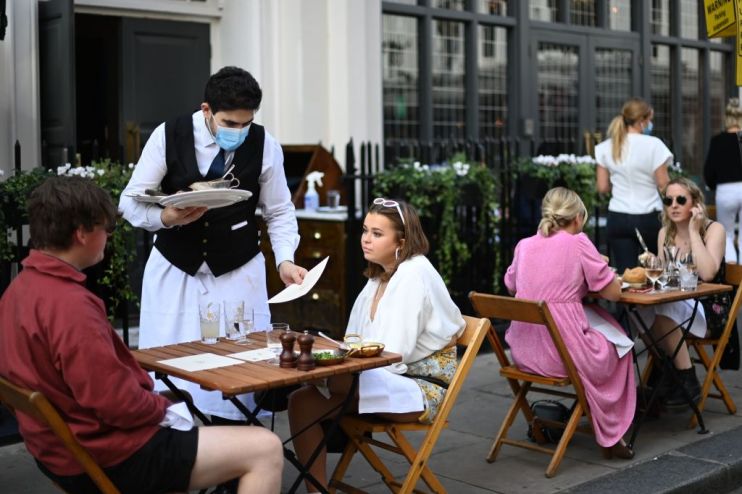Consumer confidence edges up on Eat Out to Help Out boost

Consumer confidence continued to climb over the last three months from a record low at the height of the pandemic, after the government’s Eat Out to Help Out scheme provided a welcome boost to Britain’s ailing high streets.
Deloitte’s quarterly Consumer Tracker found British shoppers’ confidence edged up one percentage point to minus 16 in the three months to the end of September.
Spending in restaurants increased by almost 50 per cent over the period, while pub and cafe sales hiked by a third.
The spike was driven by an easing of Covid-19 restrictions from early July, combined with warmer weather and continued financial support from government incentives including the Eat Out to Help Out scheme, according to Deloitte.
However, UK consumer confidence still remains well below pre-pandemic levels, with the latest quarterly figure seven percentage points lower than last September’s index.
Sentiment around levels of debt also worsened over the three-month period to minus four per cent, as consumers anticipated the end of both the furlough scheme and mortgage payment holidays.
Simon Oaten, partner for hospitality and leisure at Deloitte, said: “The gradual reopening of many leisure activities during the third quarter prompted a timid return to social life for consumers, following lockdown closures earlier in the year. Financial support for the sector has resulted in encouraging signs for dining and drinking out activities in particular.
“However, the next six months are likely to determine the speed of the leisure sector’s recovery, pending any sustained interruptions and ability to operate effectively.”
Deloitte’s survey of more than 3,000 UK consumers found sentiment surrounding the state of the UK economy was just above the record low, following a 19.8 per cent plunge in GDP in the second quarter — the worst slump of any major economy.
Ian Stewart, chief economist at Deloitte, said: “The path of the virus continues to dictate the direction of the economy as a whole, and that of consumer spending in particular.
“Despite the boost from pent-up demand, staycations and the Eat Out to Help Out scheme, there was less bounce in August’s GDP figure than expected. Now, with case rates rising, new restrictions being introduced and government support reducing, the outlook is for an even slower pace of growth in the coming months.”